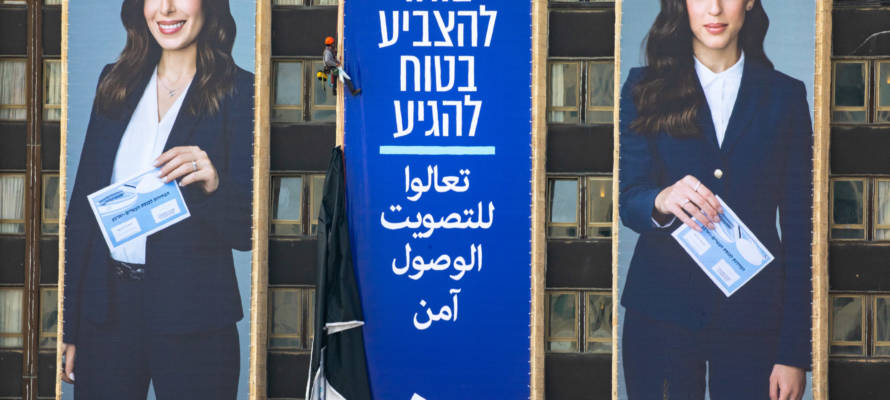While Arab citizens of Israel have traditionally supported candidates from their own community, the tide appears to be shifting.
By Yakir Benzion, United With Israel
A poll released over the weekend by the Israel Democracy Institute showed that almost one-third of Israeli-Arabs want Prime Minister Benjamin Netanyahu to continue as prime minister, Channel 12 reported.
That statistic may reflect the trend among Arab citizens of Israel to view themselves more as part of the active fabric of Israeli society, as opposed to a separate entity within it.
This year, Netanyahu is actively pursuing Israeli-Arab votes, which was reflected in the survey that showed 31 percent of Israeli-Arab voters polled want to see Netanyahu remain prime minister. While 56% said they don’t want Netanyahu, that number reflects the prime minister’s rating throughout Israeli society, where Netanyahu’s Likud Party is not expected overall to win more than a quarter of the seats in the Knesset, Israel’s parliament.
While international media is ignoring the phenomenon of Arab support for Netanyahu, most likely because it defies the false apartheid narrative that the media often promotes, the Arab mayor of Nazareth, Ali Salam, endorsed Netanyahu in the upcoming March 23 election.
“If Jews and Arabs can dance together in the streets of Dubai, they can dance together in the State of Israel as well,” Netanyahu tweeted when he campaigned in Nazareth, referring to the successful peace treaty signed last year with the United Arab Emirates.
Writing in The Forward, the former president of the Brooklyn College Hillel Foundation, Robert Cherry, noted that there have been “dramatic improvements in the lives of Israel’s Arab citizens over the last 15 years.”
“Israel has made major steps forward in fostering better quality of life for its Arab citizens, a reality that deserves to be acknowledged and celebrated,” Cherry added.
Cherry is an economics professor and his research into the Arab sector showed a dramatic improvement in the 21st century, with much of it coming while Netanyahu was prime minister.
The government invested in professional advancement in the Arab sector and the result is doubling of the number of Arabs in higher education, more Arab women in the workforce. Israeli-Arabs now comprise 17% of the country’s doctors, 24% of nurses and 47% percent of pharmacists.
This period has also seen several prominent right-wing politicians like Yamina head Naftali Bennett and the late Moshe Arens, advocating for Israel’s Arab citizens.
“Though long overdue, especially given Israel’s technological capabilities, these improvements are why Mayor Salam could publicly support Netanyahu and not fear reprisals from his constituency,” Cherry wrote.
“Why has there been so little written about these successes in the American press? Certainly, part of it is how news is reported once a group is considered victims. Presenting examples of that group’s circumstances improving is perceived as weakening the struggle for equality,” Cherry said, but pointed out that more work needs to be done to achieve full equality.
“We should no longer misrepresent Israel’s policies toward its Arab citizens nor deny the dramatic improvements experienced by Arab citizens and their communities,” Cherry concluded.
